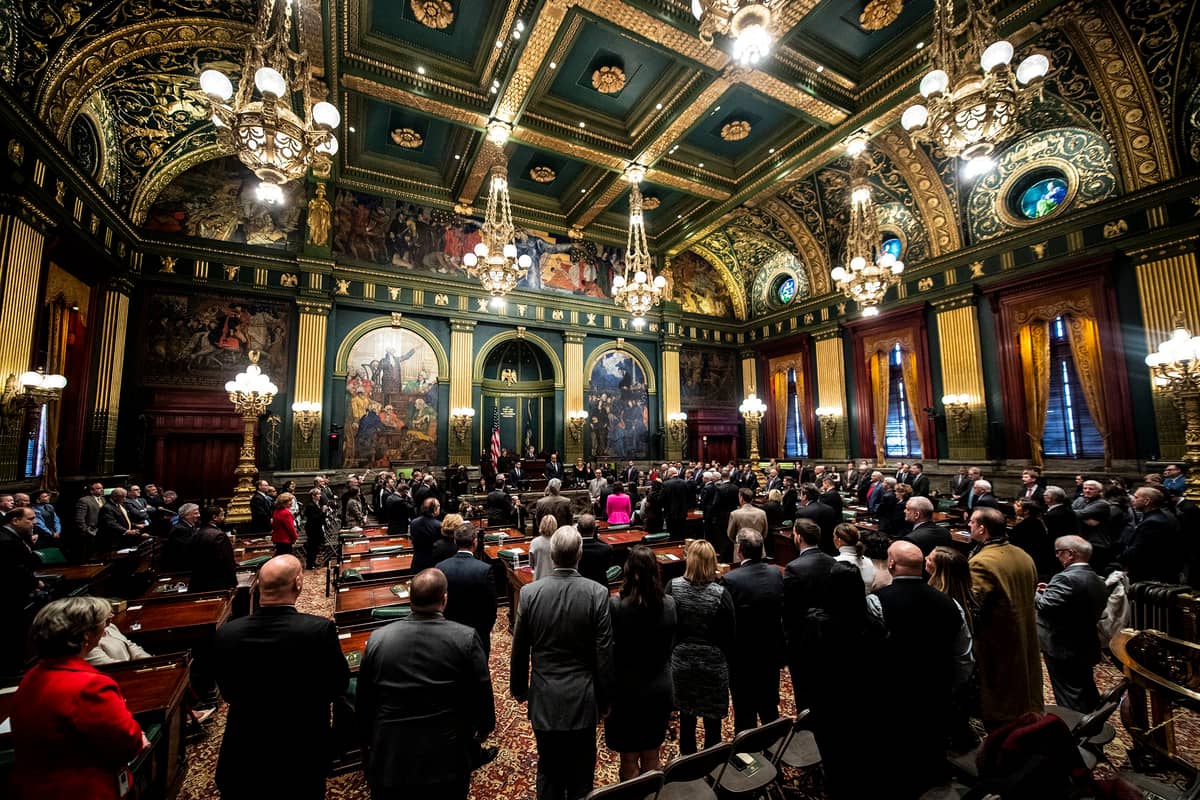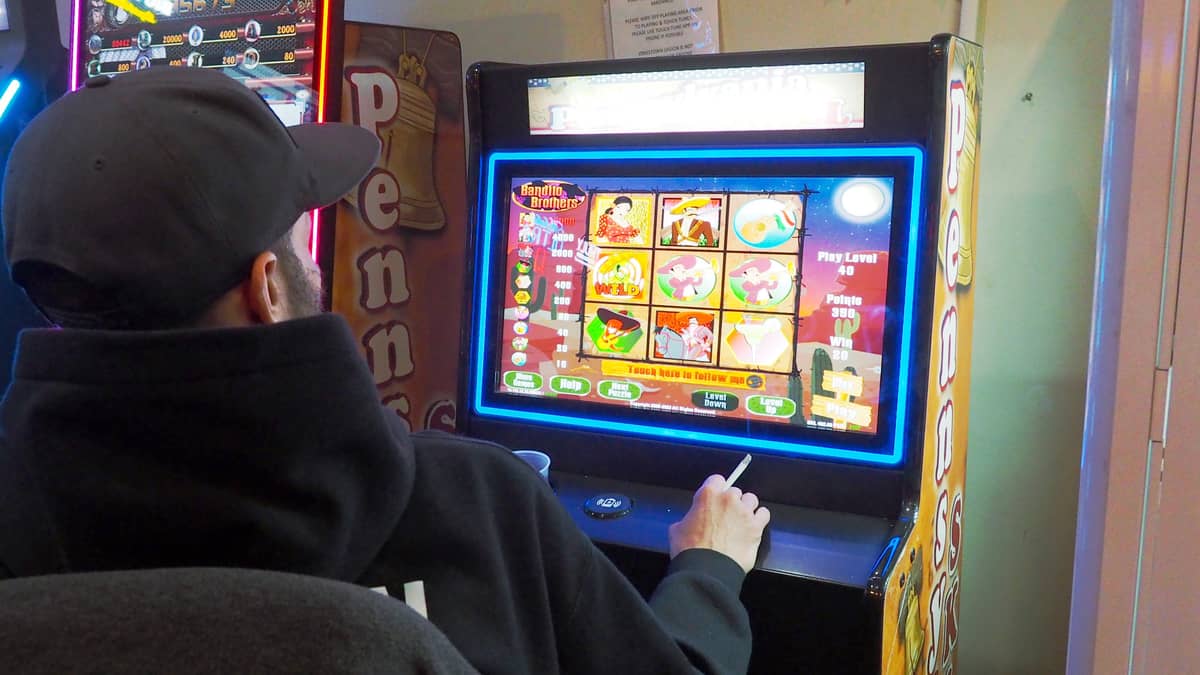This article is shared with LebTown by content partner Spotlight PA.
By Cynthia Fernandez of Spotlight PA
Spotlight PA is an independent, nonpartisan newsroom powered by The Philadelphia Inquirer in partnership with the Pittsburgh Post-Gazette and PennLive/Patriot-News. Sign up for our free weekly newsletter.
HARRISBURG — The Pennsylvania legislature has sent a short-term budget with no tax increases to Gov. Tom Wolf, an unusual measure made necessary by the strain put on the state’s finances by the coronavirus.
Lawmakers also approved the use of $2.6 billion in federal stimulus money for a variety of purposes including relief for counties and long-term care facilities, where thousands of residents have died since the pandemic began.
The state Senate on Thursday passed the $25.8 billion budget 44-6, just two days after the state House first presented the measure and passed it along party lines.
The stopgap measure flat-funds most state agencies for five months and the Department of Education for one year. That guarantees that schools — which have seen annual funding boosts over the last six years under Wolf — will not see cuts in state funding.
A spokesperson for Wolf said he will sign the budget measure.
A top Senate Republican said the budget reflects the uncertainty about what the future holds. This week, the state’s Independent Fiscal Office predicted the state will permanently lose $5 billion in revenue through next June, though that analysis assumes no widespread shutdowns in the fall should coronavirus cases peak again.
Click here to donate to Spotlight PA
“What was a promising and improving fiscal picture at the beginning of the current fiscal year for the commonwealth … has been totally turned on its head,” Sen. Pat Browne (R., Lehigh), chair of the Appropriations Committee, said on the floor.
Because it’s impossible to predict what Pennsylvania’s finances will look like when the next fiscal year ends, Browne said, “it would not be responsible fiscal policy — on behalf of the taxpaying citizens of this commonwealth — to advance an act consistent with usual practice.”
Democrats in both the House and Senate expressed concerns that flat-funding education would lead localities to raise property taxes to account for rising costs.
“If you use last year’s funding, it does not take into consideration any inflation that has occurred,” said Sen. Andy Dinniman (D., Chester), the minority chair of the Education Committee.
John Callahan, the chief advocacy officer for the Pennsylvania School Boards Association, said increases in local taxes are not out of the question.
“Who can say? It’s very different across Pennsylvania,” Callahan said. “Some school districts will need to (raise taxes), some won’t. Some will use their reserves, some school districts don’t have reserves. Some will have to furlough and make program cuts. It is just all dependent on your local circumstances.”
Callahan said with all the tough decisions the legislature was forced to make given the pandemic’s impact on revenue, he is “grateful” for the education funding the state’s school districts will receive. He said the decision to fund the Department of Education for the full 12 months is “a huge help” in making decisions on challenging issues.
“We were realizing that the budget is really tight and it’s really challenging for legislators,” he said.
Mark DiRocco, the executive director of the Pennsylvania Association of School Administrators, echoed Callahan’s remarks. He said the decision to fund K-12 schools in this sort of economic climate will go “a long way” to districts to provide services to their students. And with the budget all but decided before June, school districts and municipalities will have a rare opportunity to see the state budget before they pass their local budgets.
Still, school districts aren’t out of the woods.
“I do anticipate some districts will need to raise property taxes if they want to maintain their current level of programming,” DiRocco said.
DiRocco cited increasing costs like pensions, special education services, and charter school tuition — combined with coronavirus-related demands like more hand sanitizer and overtime pay for custodial staff — as the major financial challenges districts will need to face.
Also Thursday, the legislature swiftly approved a bill that would appropriate $2.6 billion of the $3.9 billion Pennsylvania received from the CARES Act to provide COVID-19 relief.
The 60 Pennsylvania counties that previously didn’t receive stimulus dollars will each get a cut of $625 million based on population, while hard-hit long-term care facilities will get $632 million distributed through a variety of formulas.
The measure also appropriates $255 million for small businesses and $175 million to prevent foreclosures or evictions brought on by hardships because of the coronavirus pandemic. Daycares and other child-care services will receive $116 million.
What the legislature will do with the remaining $1.3 billion remains to be seen. Currently, the money cannot be used to replace lost state and local revenues, though there are hopes that the federal government will make those dollars more flexible.
Senate Majority Leader Jake Corman (R., Centre) said he and other lawmakers are waiting to see if Congress will appropriate dollars specifically for revenue replacement.
“We’re sort of waiting to see like everybody else,” he told reporters Thursday.
Lawmakers will likely face tougher choices this fall, when much of the temporary budget is set to expire on November 30 — the last day of the legislative session.
100% ESSENTIAL: Spotlight PA relies on funding from foundations and readers like you who are committed to accountability journalism that gets results. If you value this reporting, please give a gift today at spotlightpa.org/donate.
Read all of LebTown’s COVID-19 coverage here.
Is there a story you think LebTown should report? Let our newsroom know using the form below.
Help us provide journalism Lebanon County needs.
If you are thankful for LebTown, consider joining as a member. Members get an inside look at our publishing schedule each week, plus invites to a members-only Facebook group and happy hours.
Learn more and join now here.
Subscribe to our newsletter for updates each weekday at 3 p.m.























